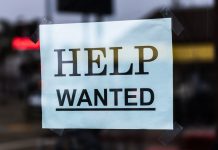Big banks have transformed into our primary domestic currency terrorists. ?One third?of the nation’s wealthiest CEO’s have released their heat seeking gambling missiles out to sea with our tax dollars on a one way trip. Every time Bank of America, JP Morgan Chase, and the like play Russian Roulette ?with our currency and require a bailout by the federal reserve, they prematurely hike up the rate of inflation. A depreciating currency means that the lower echelons of society have to slave away twice as hard for that bag of oranges or grilled cheeseburger. Opening a checking or savings account with a monster bank corporation has become second nature, like breathing for the majority of us. We enjoy the convenience of accessing our deposits from all over the United States. These mammoth banks appear to be offering a simply necessary service, i.e. the protection of our personal financial wealth, but their delusional hyper profit goals put all of our standards of living in jeopardy.
Presently CEO’s working in United states are legally allowed to receive unlimited amounts of tax based pay depending on their performance on the job. The loophole is simply entitled ?performance based pay?. Currently there are too many corrupt CEO’s to name without causing the reader to walk into unknown territories of angst, morbid reflection, and the realization that we are the ?suckers?, but for mere befuddlement, I’ll just mention a few of the grimey ones.
?1)Stuart Gulliver- CEO of HSBC
Money laundering and is facing charges for aiding mexican drug cartels by moving money through the bank.
Falsified the purchase of OMGPOP, declaring $100 million shy of the actual price he paid for it.
3) Jamie Dimon- CEO of Chase Bank
Lied to investors about losing $6 billion in high risk trading so as to not discredit the value in stock. He is currently not being prosecuted.
The superfluously dreary list of CEO’s committing similar crimes or worse appears to be ever expanding. The pursuit of wealth and power can make someone feel as though they are above the rest of society. These corporate executives conned the government and investors with mad cow logic. The deranged method in which they ran off with our tax dollars wasn’t a recently ingenious plan, but an old and even all too familiar play from the conman’s playbook was pulled up from the ashes.
The year: 1929. The day: October 29, or what later came to be infamously known as Black Tuesday. People are living lavishly at what was the end of a prosperous era of Gatsby immersed debauchery. In the midst of the festivities stocks dwindled to the depths of Hades, and there was a suicidal desperation for investors to sell, sell, sell! Unfortunately on that day it wasn’t a buyers market, but was a climax of stock stagnation. On that day over 5,000 banks had their clients monies invested in the stock market. The faith in our financial institutions were compromised and financial havoc broke loose.
In retaliation to this event congress passed a nearly flawless law shortly after in 1933 labeled the ?Glass-Steagall Act? that mandated a bank can either be a savings and loan or deal in securities transactions; tradable assets in the form of debt, equity, and/or derivatives but the two business? shall never meet . To prevent similar acts of anarchy from arising sat a rider on the bill that spawned the birth of the FDIC. This addition to the bill was an intelligent play by the Federal reserve and was imperative for the induction of a stabilized US dollar. Now people knew exactly where their money was being invested, and as a plus it was backed by the federal reserve.
After 70 blissful years of surviving the pursuit of the ferocious bankers , the Glass Steagall Act was ?surrounded and attacked on all fronts. The authenticity of the bill was compromised and slaughtered by the persistence of two key lobbyists that were hell-bent on ungodly amounts of banking deregulation that go by the names of Mr. John Reed, former CEO of Citigroup and a Mr. Sanford Weill, former CEO and chairman of Citigroup. It took them about 6 years of lobbying and $300 million dollars to decimate the depression era bank law. In its place appeared an evil that the devil would turn his back on: the Gramm-Leach Bliley Act. This act paved the way for banks to create a legal fusion between commercial banks, investment banks, securities firms, and insurance companies. This basically allowed the big banks to once again gamble away all of our checking and savings deposits. Now the boy in the banking industry could have some real fun with everyone’s money. Surprisingly, this bill was approved by former president Bill Clinton. Sanford Weill has been called among his colleagues as ?The Man who Bought the President?.
Reed gave an interview with Bloomberg News ?and presented a somewhat seemingly curveball apology for his $45 billion dollar mishandling and now publicly announced his regret for contributing to the dismantling of the depression era banking laws. He said:
I would compartmentalize the industry for the same reason you compartmentalize ships. If you have a leak, the leak doesn’t spread and sink the whole vessel. So generally speaking you’d have consumer banking separate from trading bonds and equity.
Obama and the Democrats retaliated to the 2008 financial crisis in 2010 with the implementation of the Dodd-Frank Wall Street Reform and Consumer Protection Act. This hefty 848 page legislative supernovel includes 400 new laws a. What kinds of secrets lay within this massive legislative overhaul? Thats what they’re still trying to figure out in the senate. After three years of the Acts conception, they are still deciphering it. The Republicans aren’t thrilled about it and are calling it the ?Too big to not fail act,” ?where they interpret the act as a governmental command and conquer. This act does call for heavy government oversight into numerous areas other than just the banking sector, wall-street, and consumer protection arenas. Its an interesting bill for its wide array of diversified governing.
Section 204 of the Dodd-Frank act is entitled ?Orderly liquidation of covered financial companies?. It is a section that from what I interpret is one of transparency and has answered at least a cry or two from the Occupy protests and proper retaliation against the big banks gambling habits. It states that if a company has failed and becomes liable to damage the US economy and its residents, it shall not be bailed out, and if necessary will be liquidated and the burden of the collapse will lay solely upon the creditors and shareholders. It also states that anyone who was responsible for the financial state of the failing company bears those losses in relation to their responsibility of work and recoupment of compensation may be enforced. In section 1502 of the bill, the government has planned to venture to the Republic of Congo to intervene in matters concerning conflict minerals that support armed forces and contribute to inhumane acts.
Now the big executive chiefs are silent. Some took their golden parachutes and bought a one way ticket to paradise, while others may be lurking in the shadows of the 848 page legislation waiting to satiate their unmanageable appetite. While the dragon lies asleep, the question at hand is, how flawed is the new banking legislation and will the high-risk loopholes resurface? Will the federal reserve grant special privileges to big banks over time like they did in 1986-1987? Will a future president fall prey to amoral lawless lobbyists? The Dodd-Frank act is a hefty piece of legislature that will be known either as the protector of consumer financial assets, or, more likely, simply a lawyers playground.
Edited/Published by: SB





